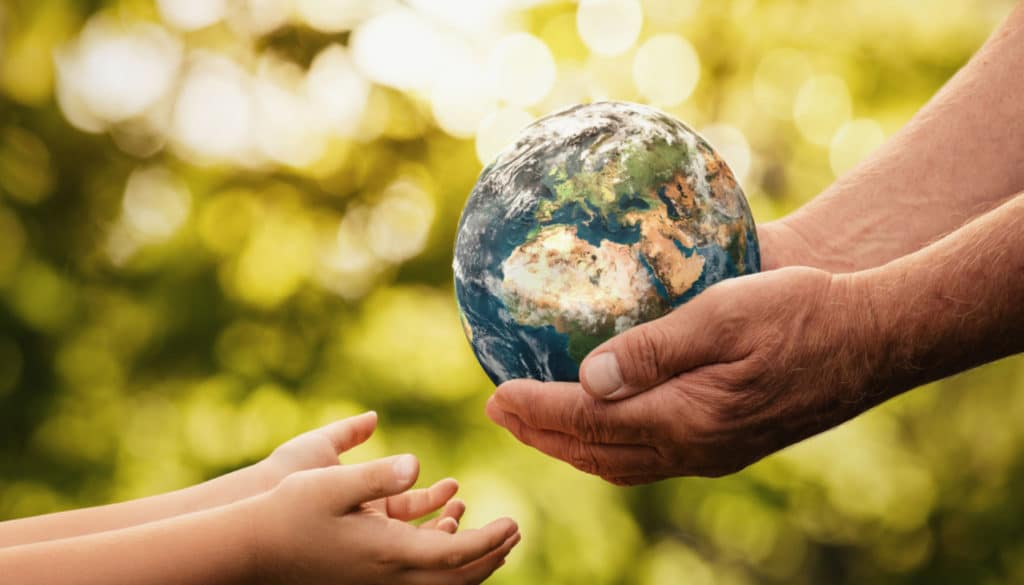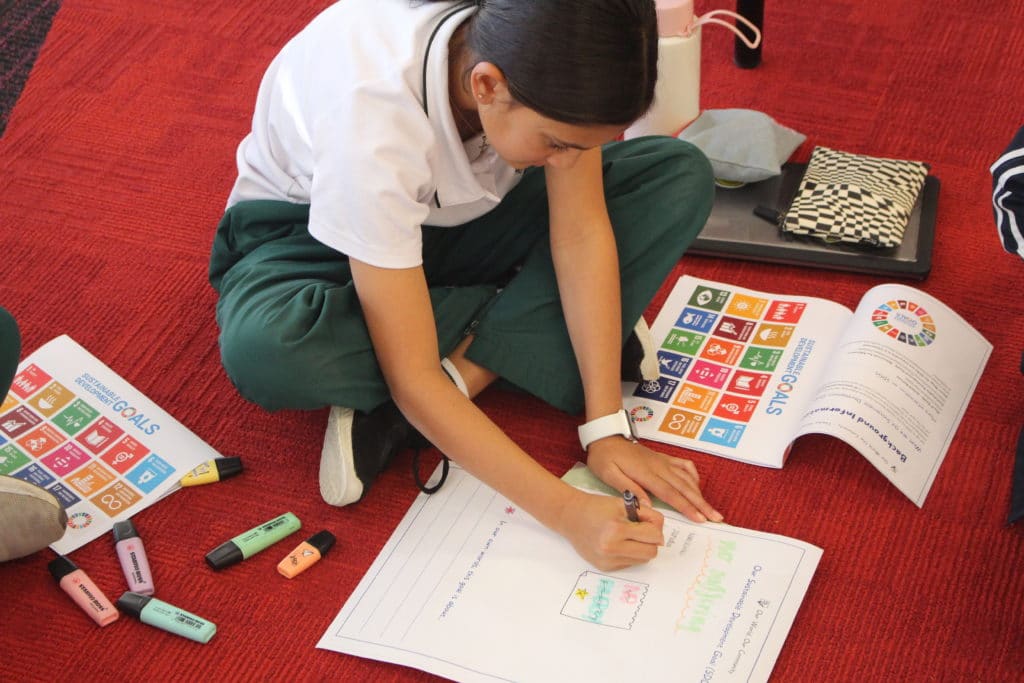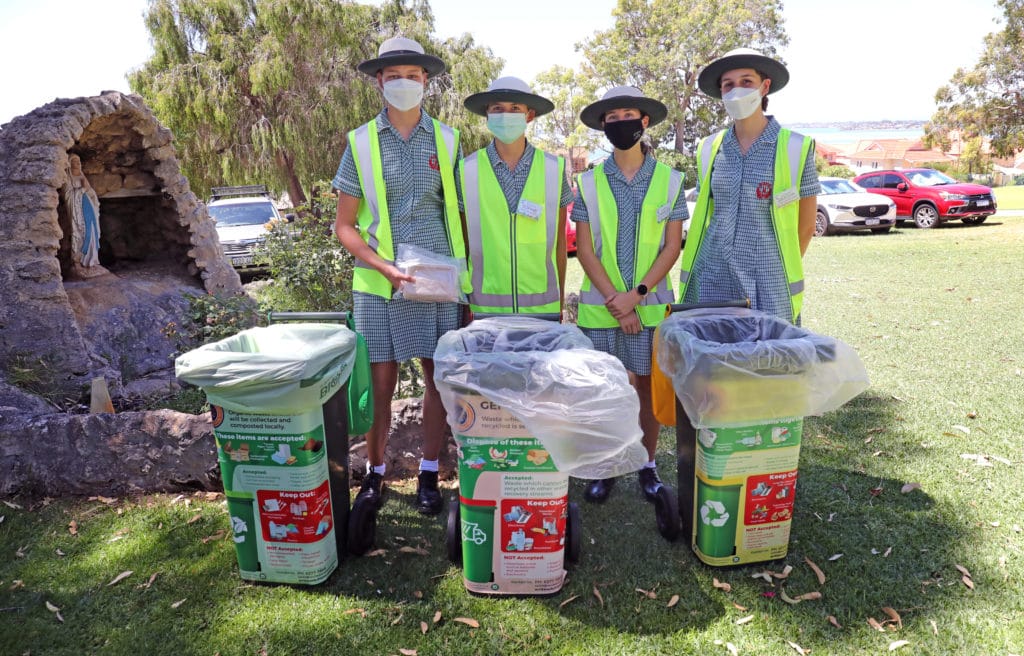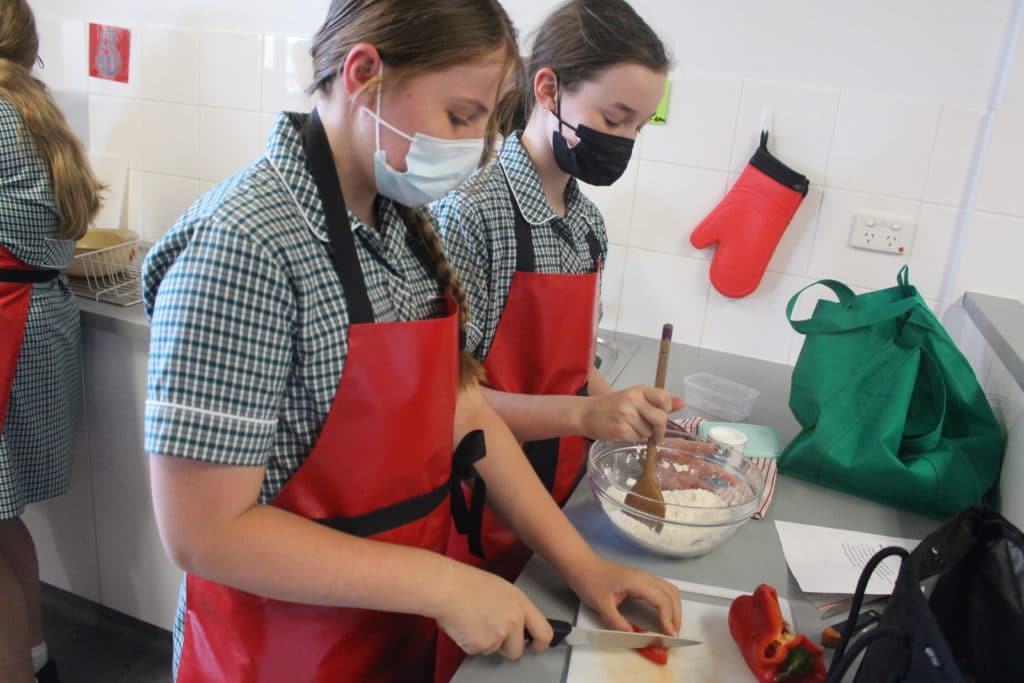Social Impact – Making A Positive Difference To People And Our Planet- Jennifer Oaten

The expectations of businesses to have a greater social responsibility have dramatically risen as society encounters more serious issues such as climate change and inequality. Right now, it’s more vital than ever to understand how organisations can contribute to positive change so that everyone knows how they can start the conversation and become a part of the social impact movement.
What does social impact mean, and how can schools like Santa Maria College contribute to this movement?
Social impact is at the heart of what we do. We work hard to create social impact by addressing poverty and inequality and protecting the environment. We believe everyone has a role to play in making a difference, and we are committed to doing our part.
We know that creating social impact is not easy, but we also know that it is essential. We are dedicated to finding innovative ways to create social impact and to sharing our learnings with others so that we can all make a difference. Join us on this journey!
5 great examples of social impact
- The Grameen Bank in Bangladesh provides small loans to the poor, which they can use to start or expand a business. Over the years, the Grameen Bank has helped millions of people lift themselves out of poverty. The success of the Grameen Bank shows that microfinance can be an effective tool for poverty.
- The Body Shop was one of the first companies to adopt an environmentally-friendly business model. Many of their products are made from natural ingredients; they do not use animal testing and are actively campaigning against this. They are working hard to prevent and address all forms of modern slavery in our global operations and supply chain.
- Ben & Jerry’s is committed to using only Fairtrade ingredients in their ice cream. They also actively campaign on social issues like same-sex marriage and racial equality.
- Google is known for its environmentally-friendly initiatives. They use 50% less energy than other companies of similar size. They have also invested over $1 billion in renewable energy projects.
- Netflix is committed to being carbon-neutral by 2030. They are also active in campaigning on social issues, such as net neutrality and data privacy.

Where do the United Nations Sustainable Development Goals sit in relation to social impact?
The United Nations Sustainable Development Goals (SDGs) are a set of 17 goals that member states have committed to achieving by 2030. The goals cover many issues, including poverty, hunger, healthcare, education, climate change, and gender equality.
The goals are:
- GOAL 1: No Poverty
- GOAL 2: Zero Hunger
- GOAL 3: Good Health and Wellbeing
- GOAL 4: Quality Education
- GOAL 5: Gender Equality
- GOAL 6: Clean Water and Sanitation
- GOAL 7: Affordable and Clean Energy
- GOAL 8: Decent Work and Economic Growth
- GOAL 9: Industry, Innovation and Infrastructure
- GOAL 10: Reduced Inequality
- GOAL 11: Sustainable Cities and Communities
- GOAL 12: Responsible Consumption and Production
- GOAL 13: Climate Action
- GOAL 14: Life Below Water
- GOAL 15: Life on Land
- GOAL 16: Peace and Justice Strong Institutions
- GOAL 17: Partnerships to achieve the Goal
While each goal is important in its own right, they are all interconnected. For example, achieving gender equality (Goal 5) is essential for tackling poverty (Goal 1). Similarly, improving access to education (Goal 4) can help reduce inequality (Goal 10).
The SDGs provide a framework for countries to work together to achieve a more sustainable future for all. They also offer businesses and other organisations an opportunity to play their part in making a difference to people and our planet.
These goals also underpin our strategic plan pillar – Social Innovation.
Santa Maria College is a social innovator, which means we are always looking for new ways to improve society. We believe that schools have the power to transform lives and make the world a better place.
What are the benefits of social impact?
There are numerous benefits to having a social impact.
Social impact can:
- help create positive change in the world,
- build bridges between different communities and groups of people,
- promote economic development and social justice,
- help individuals and groups feel more connected to the wider world and have a greater sense of purpose, and
- help protect the environment.
The benefits of social impact are far-reaching and can be extremely positive for both individuals and society as a whole.

How is Santa Maria College making social impact?
Some examples of our work under the Social Innovation pillar include:
3.1 Establish innovative ways for our students to learn practical life skills to make a difference in the world
- Santa’s Workshop is to be launched next term to develop student skills to create items for those in need.
- Our ’emPower’ program (formerly Enhanced Learning Program) aims to develop life skills and attributes in our students to innovate and implement creative ideas to make a difference.
3.2 Implement green initiatives to demonstrate commitment to stewardship
- The Organic Revolution is an exciting College initiative that ensures all College food waste and organic matter is composted instead of ending up in landfills. The next stage in our implementation is the recycling of plastics.
3.3 Develop a young entrepreneur’s program
- Women in Business is a new co-curricular at the College, providing students with the opportunity to develop their entrepreneurial skills and establish their own small businesses which focus on the needs of others.
Catherine McAuley, our foundress, was a woman of great service. We continue this Mercy tradition at the College through Service co-curricular groups such as:
Young Mercies
- Making a Difference – Students make library bags for Thornlie Intensive Language Centre and care packs for Zonta House and Homelessness We Care.
- Cook-ups – Students prepare and package meals for the homeless. Students supply ingredients for a given recipe and donate this food to Shopfront and Homelessness We Care.
Eco-Sisters – Over 100 students are driving sustainability at the College, including our Organic Revolution, environmental and recycling initiatives. Junior Sprouts is our Years 5 and 6 group.
Mercy Leadership Groups, Seeds of Justice, and Just Leadership students raise awareness, goods and funds for social justice issues.
Young Vinnies – Students promote and support the work of the St Vincent de Paul Society, Western Australia, through fundraising activities such as our Winter and Christmas Appeals and assisting women in need at Zonta House. Our Years 5 and 6 group are called Mini Vinnies.
Uthando Dolls – Students make dolls that are sent to children in Africa.
All students are required to complete service hours in addition to the above formal groups. These are achieved through volunteering at a variety of organisations.

How can we measure social impact?
The main challenge of social impact is that it can be difficult to measure. This is because social outcomes are often intangible and can take a long time to achieve. As a result, it can be difficult for organisations to set targets and to know if they are achieving their desired impact.
Here are some ways that social impact can be measured:
- Measure how happy people are with a project or intervention. If a project provides support to homeless people, for example, then participant satisfaction would be measured by how happy the people receiving the support are.
- You could measure the number of volunteer hours
- The amount donated, for example, how many cans of food were donated or how many blankets
- The number of meals provided
- The number of people fed
- Families assisted
- Communities served
We are leading the charge and making social impact a priority at our school and in the community. What does this mean for our students? It means they are gaining skills that will serve them well in their chosen careers; they are also learning about their responsibility as citizens of the world and learning and understanding the importance of working towards the United Nations Sustainable Development Goals. And it’s not just theoretical; we have a robust program of action that helps students put what they learn into practice. We are excited about what we have achieved but even more excited about where we can go.
We hope more schools will join Santa Maria College in positively impacting the world.

The Power of Expectations in Shaping Student Success – Jennifer Oaten
Discover the transformative impact of expectations on student success. Learn how belief shapes outcomes in education and beyond.

Exploring the Artistic Universe of Isabelle de Kleine (2011)
From childhood, Isabelle de Kleine’s talent flourished, guided by the supportive Art department into the renowned artist she is today.

What A Term! So Many Opportunities – Jennifer Oaten
As I look back on the past nine weeks, I am so grateful for who we are as a community and what we have achieved. Through the dedication of our staff and the enthusiasm of our students, we have established new connections, immersed ourselves in opportunities and worked through challenges.
- Featured, Social Impact, Social Innovation
Author: Santa Maria College
Santa Maria College is a vibrant girls school with a growing local presence and reputation. Our Mission is to educate young Mercy women who act with courage and compassion to enrich our world. Santa Maria College is located in Attadale in Western Australia, 16 km from the Perth CBD. We offer a Catholic education for girls in Years 5 – 12 and have 1300 students, including 152 boarders.






